Perform OCR in Azure using C#
13 Aug 20259 minutes to read
The Syncfusion® .NET OCR library is used to extract text from scanned PDFs and images in Azure with the help of Google’s Tesseract Optical Character Recognition engine.
Azure App Service Windows
Steps to perform OCR on entire PDF document in Azure App Service
Step 1: Create a new ASP.NET Core MVC application.
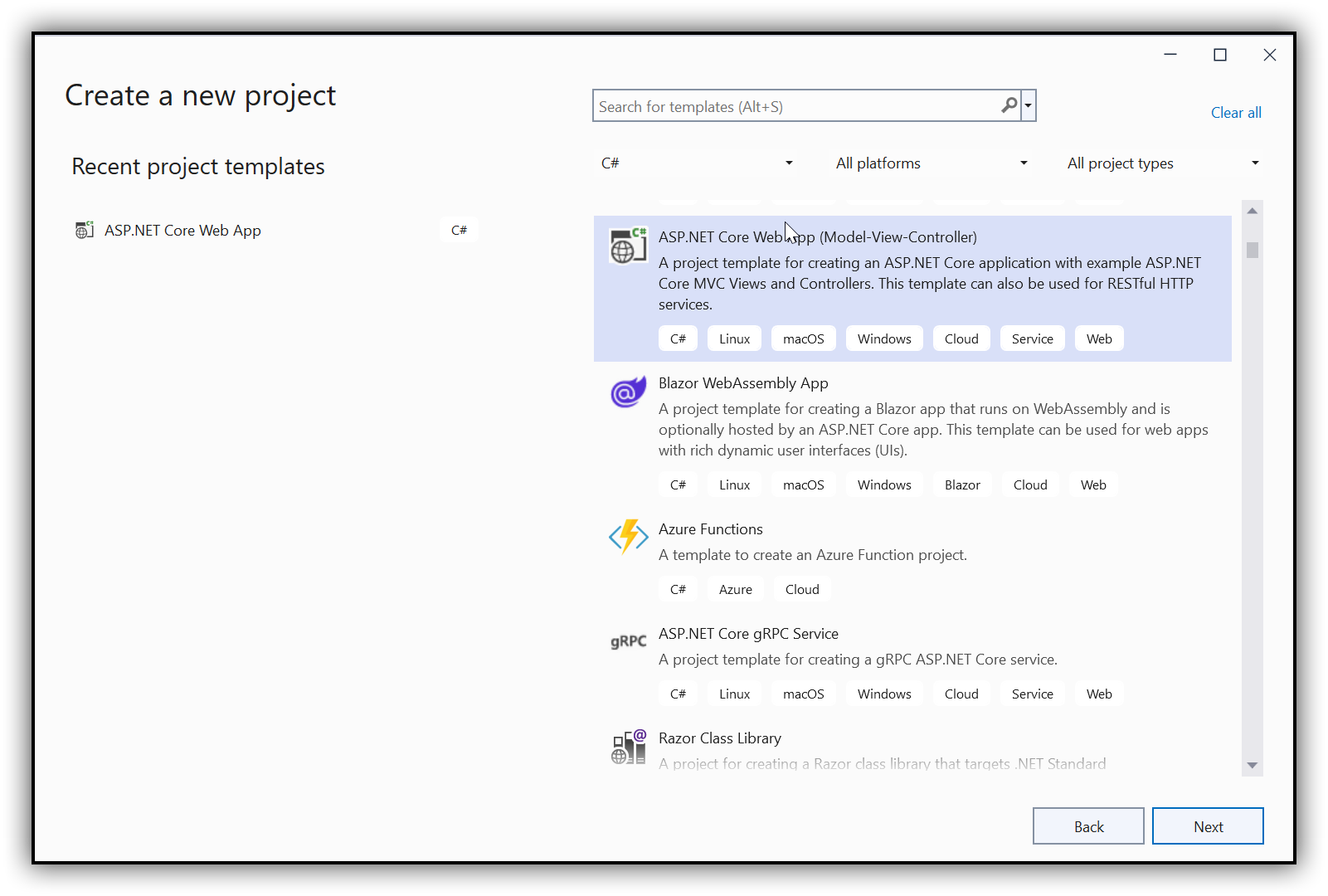
Step 2: In configuration windows, name your project and click Next.
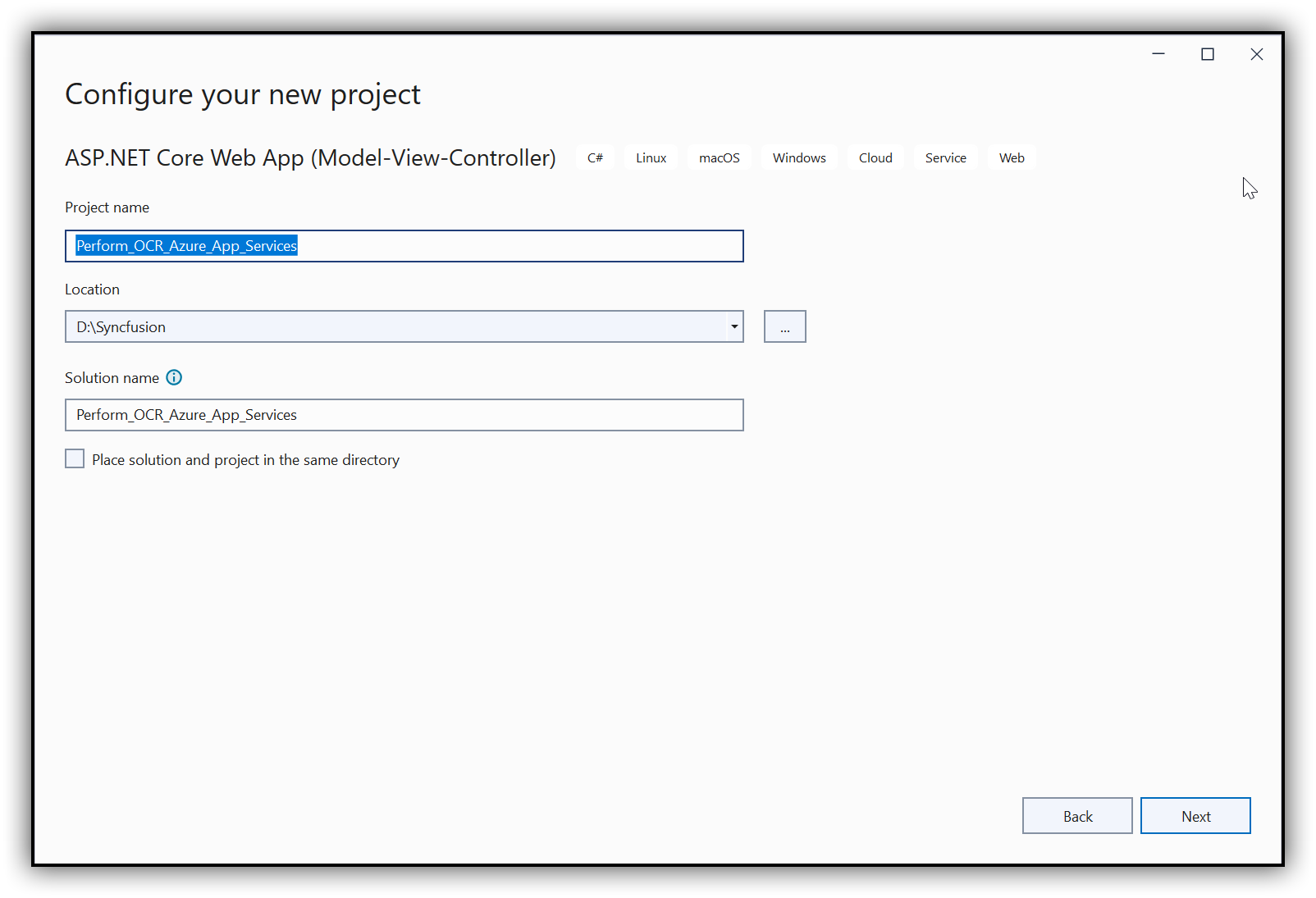
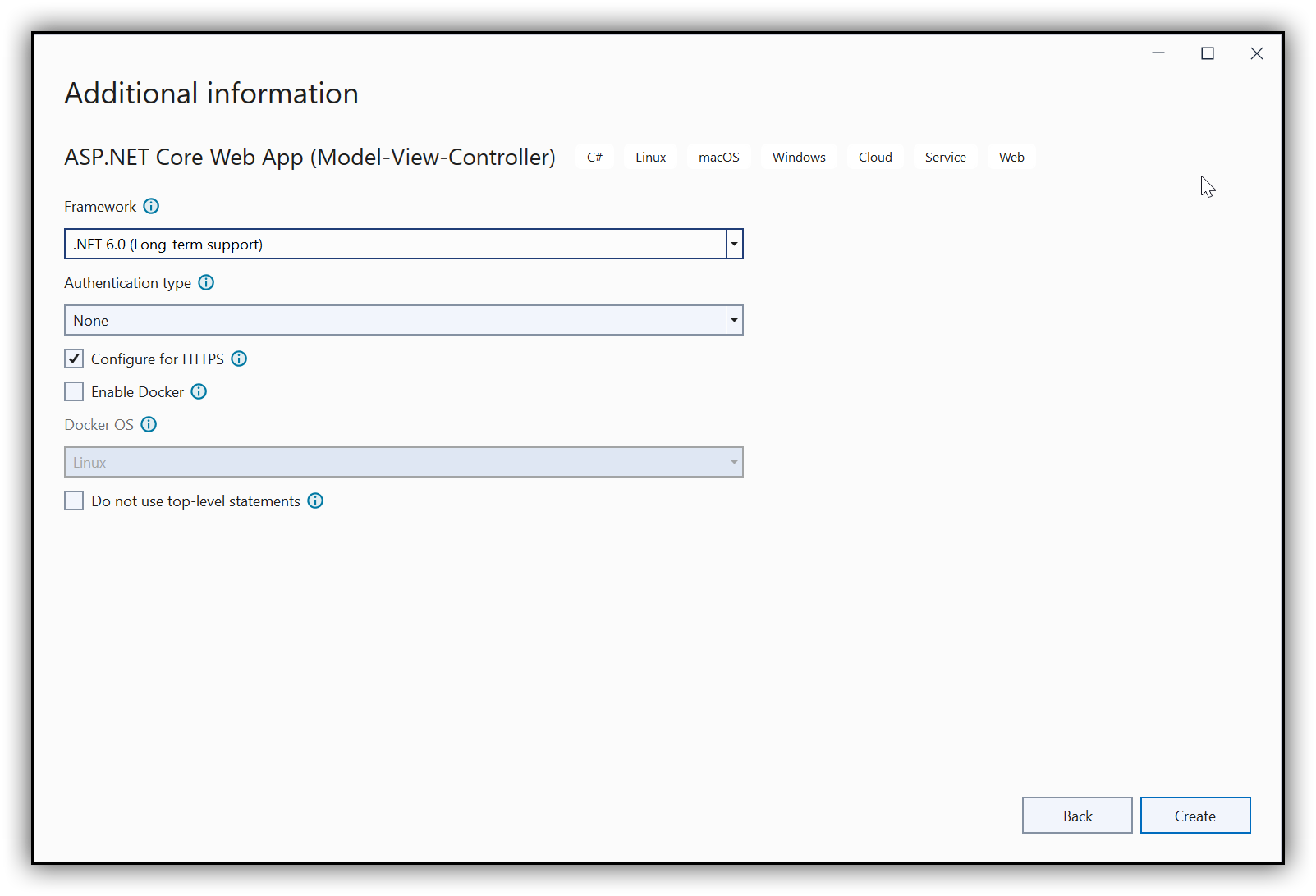
Step 3: Install the Syncfusion.PDF.OCR.Net.Core NuGet package as a reference to your .NET Standard applications from NuGet.org.
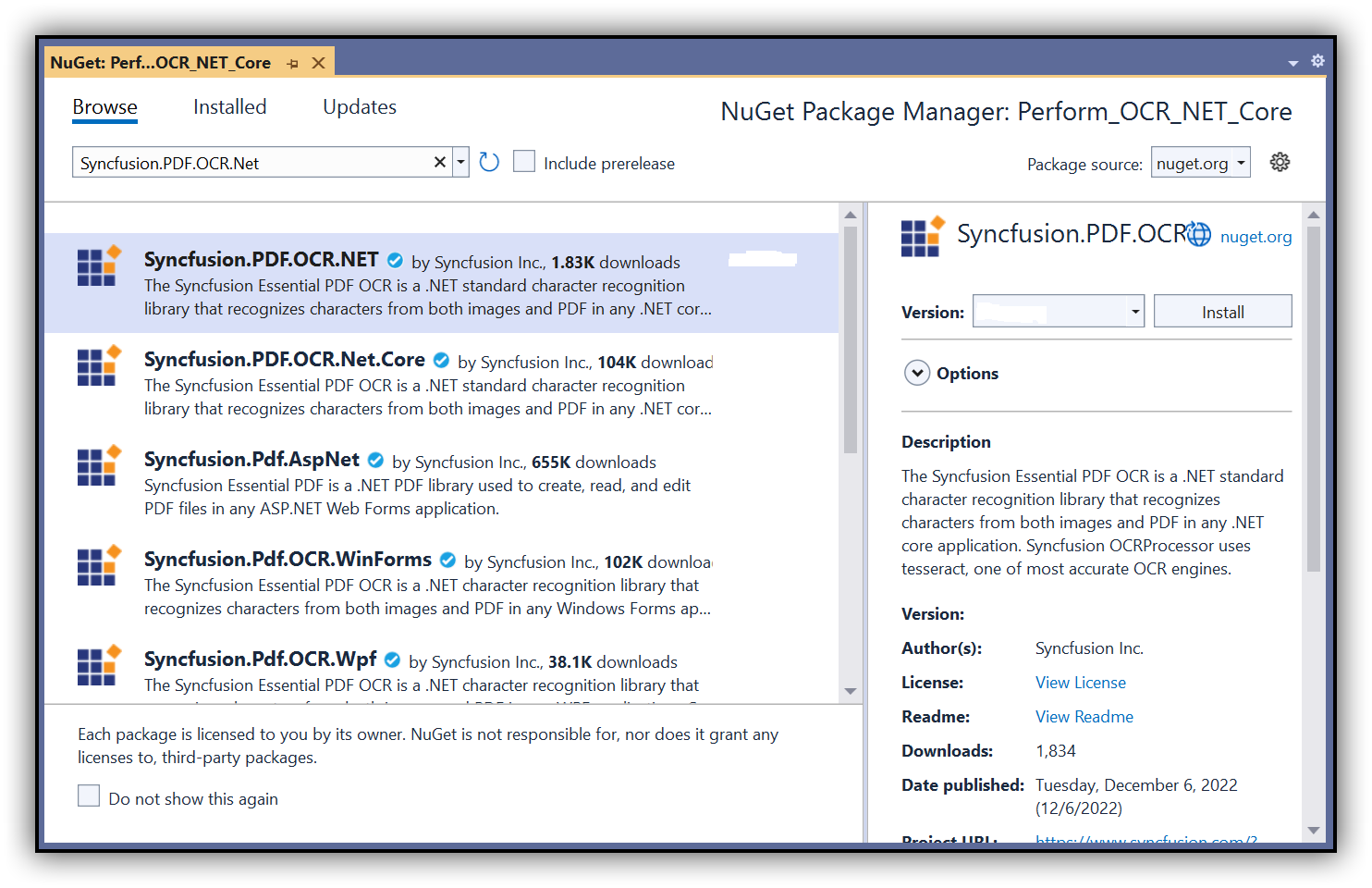
NOTE
- Beginning from version 21.1.x, the default configuration includes the addition of the TesseractBinaries and Tesseract language data folder paths, eliminating the requirement to explicitly provide these paths.
- Starting with v16.2.0.x, if you reference Syncfusion® assemblies from trial setup or from the NuGet feed, you also have to add “Syncfusion.Licensing” assembly reference and include a license key in your projects. Please refer to this link to know about registering Syncfusion® license key in your application to use our components.
Step 4: Add a new button in index.cshtml as follows.
@{
Html.BeginForm("PerformOCR", "Home", FormMethod.Get);
{
<br />
<div>
<input type="submit" value="Perform OCR" style="width:150px;height:27px" />
</div>
}
Html.EndForm();
}Step 5: Include the following namespaces in the HomeController.cs file.
using Syncfusion.OCRProcessor;
using Syncfusion.Pdf.Parsing;
using Microsoft.AspNetCore.Hosting.IHostingEnvironment;Step 6: Add the code samples for performing OCR on the entire PDF document using PerformOCR method of the OCRProcessor class.
public IActionResult PerformOCR()
{
//Initialize the OCR processor.
OCRProcessor processor = new OCRProcessor();
//Load a PDF document.
PdfLoadedDocument lDoc = new PdfLoadedDocument("Input.pdf");
//Set OCR language to process.
processor.Settings.Language = Languages.English;
//Perform OCR with input document.
string ocr = processor.PerformOCR(lDoc);
//Save the document.
MemoryStream stream = new MemoryStream();
lDoc.Save(stream);
return File(stream.ToArray(), System.Net.Mime.MediaTypeNames.Application.Pdf, "OCR_Azure.pdf");
}Step 7: Now, check the OCR creation in the local machine.
Steps to publish as Azure App Service
Step 1: Right-click the project and click Publish.
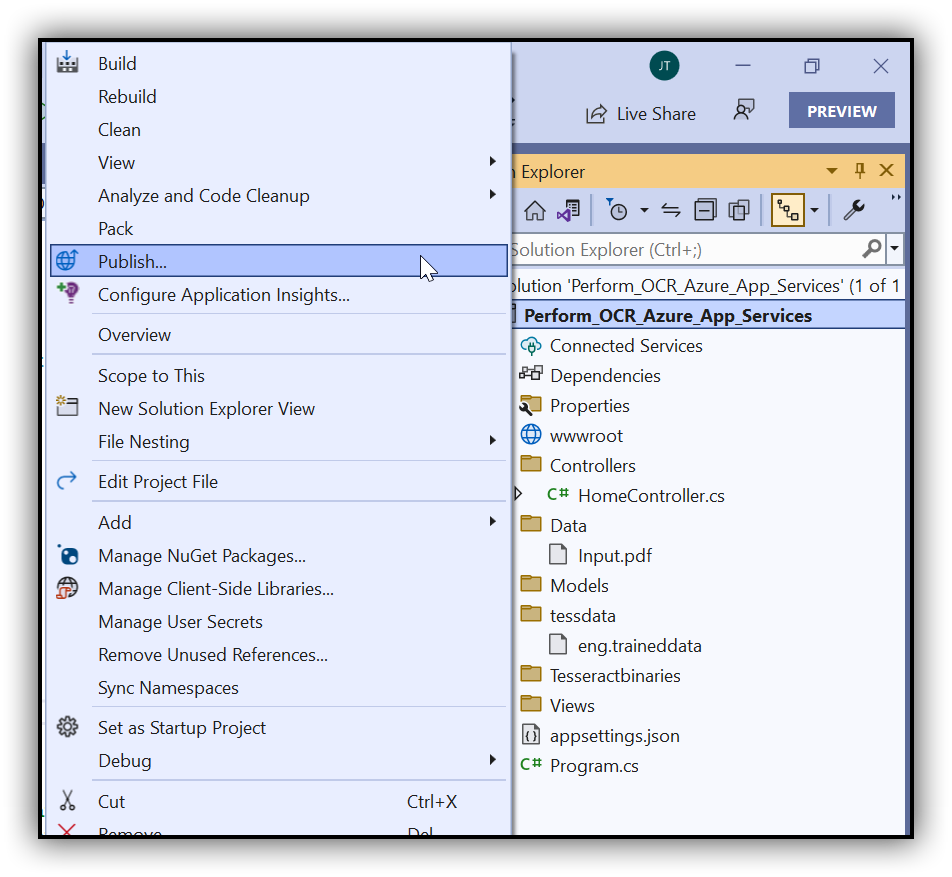
Step 2: Create a new profile in the publish target window.
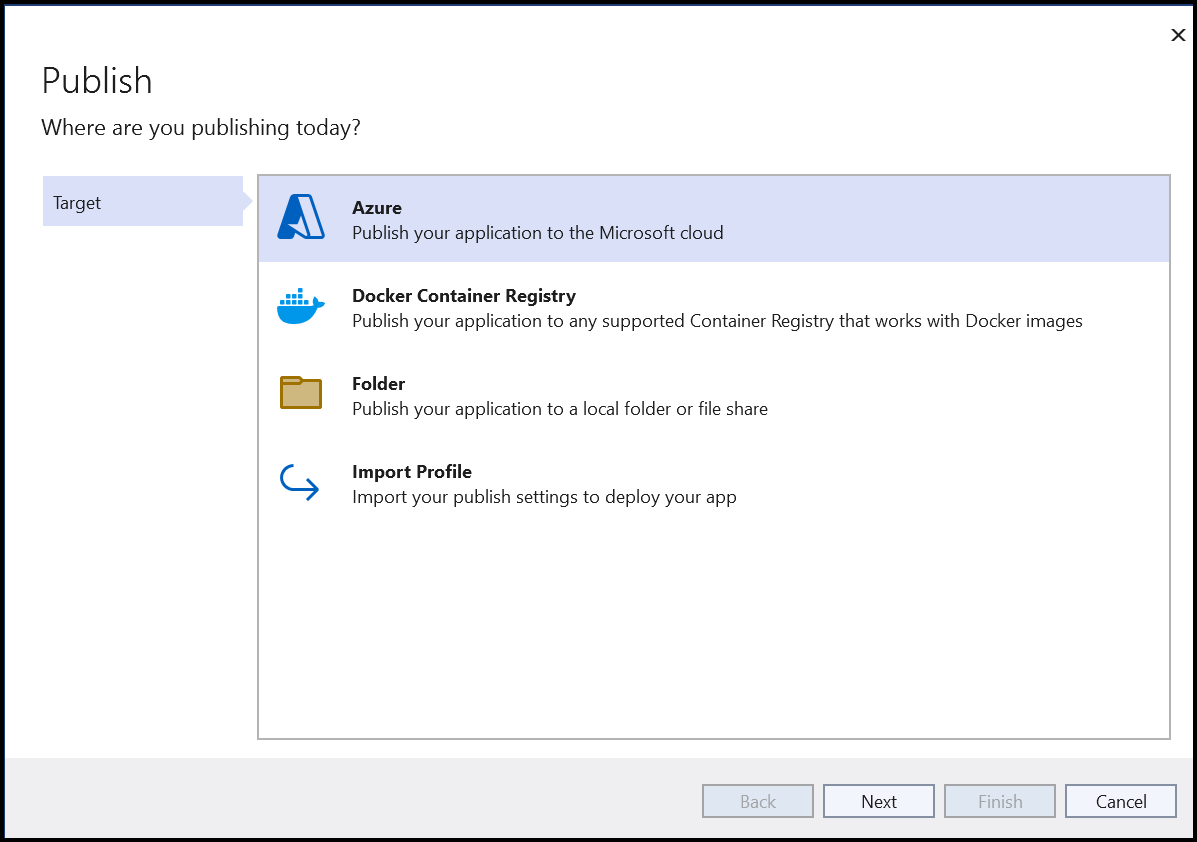
Step 3: Select the Specific target as Azure App Service (Windows).
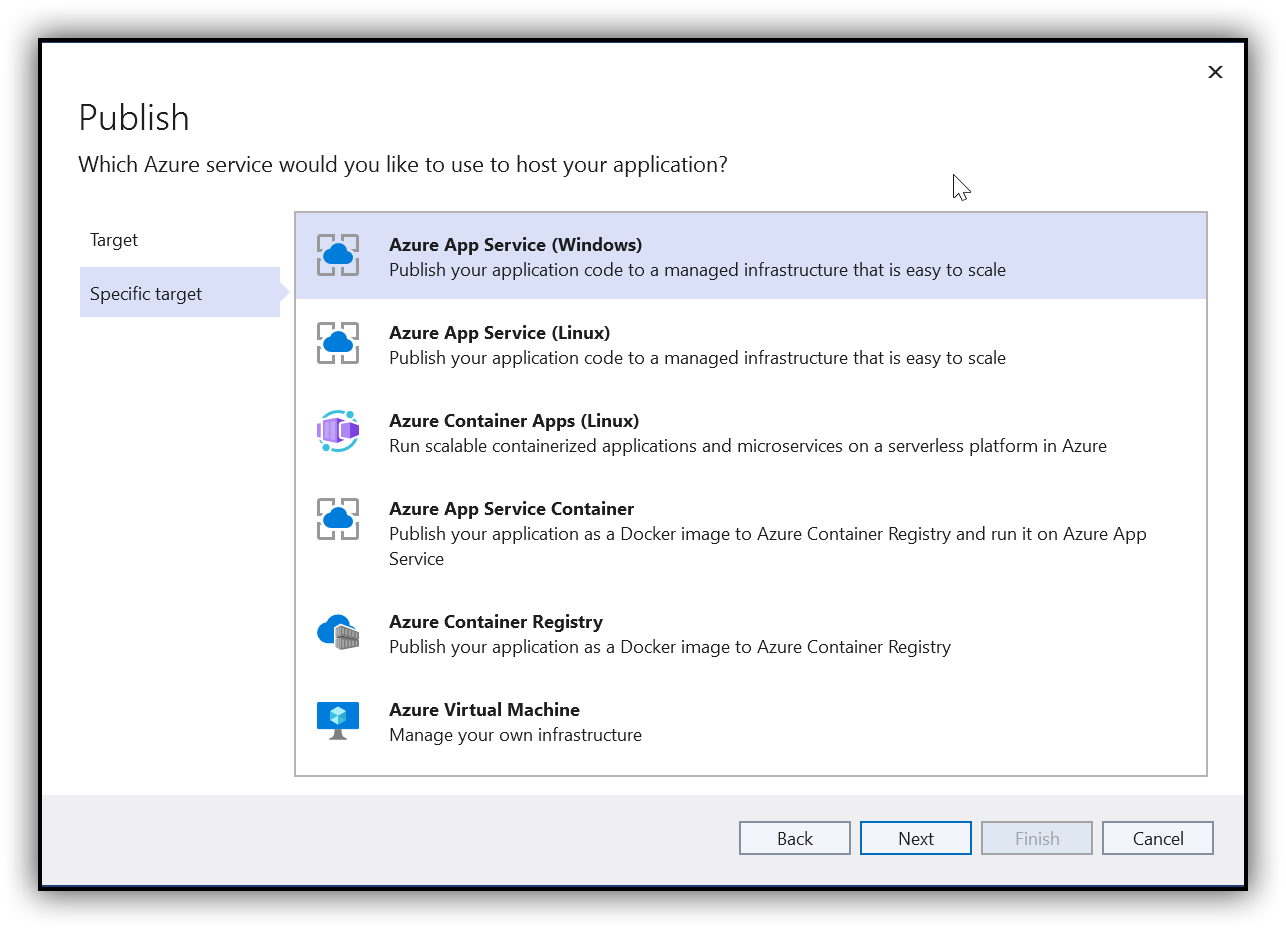
Step 4: To create a new app service, click Create new option.
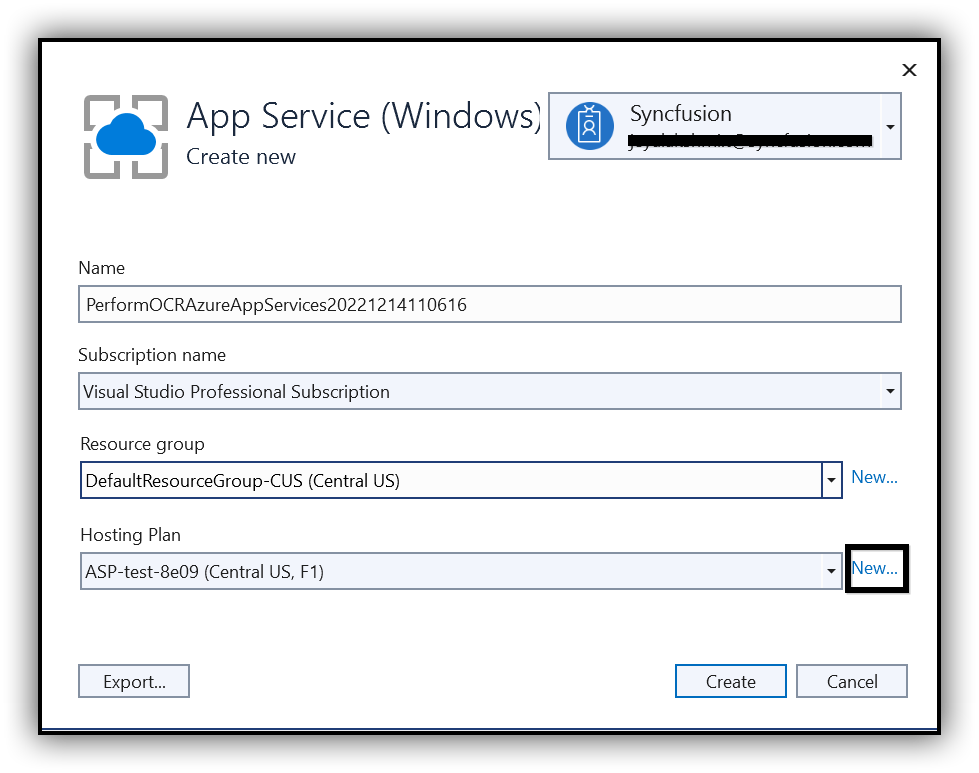
Step 5: Click the Create button to proceed with App Service creation.
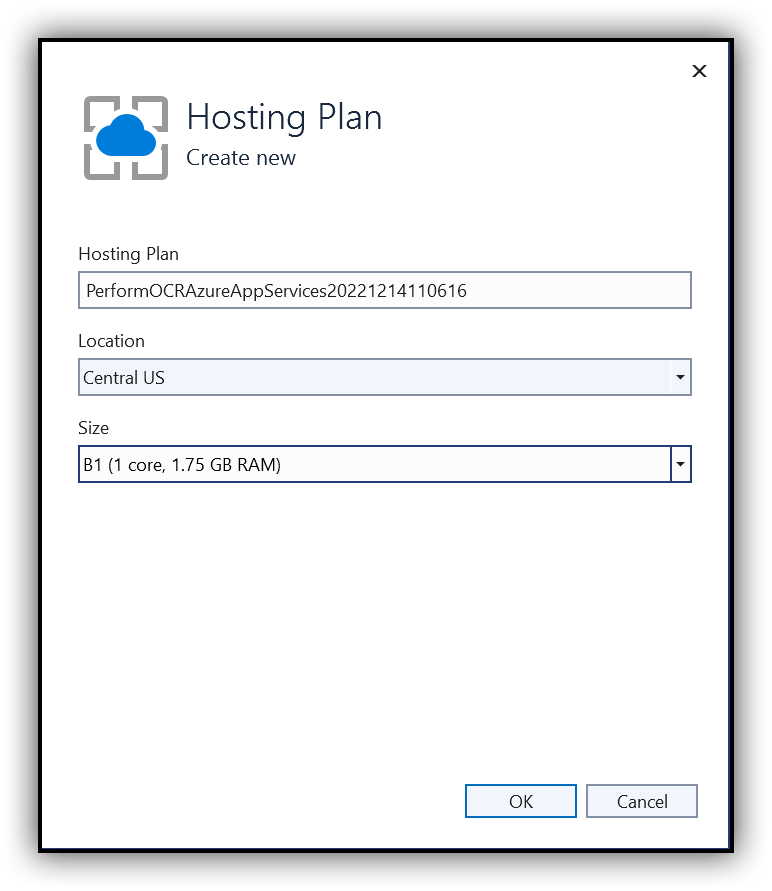
Step 6: Click the Finish button to finalize the App Service creation.
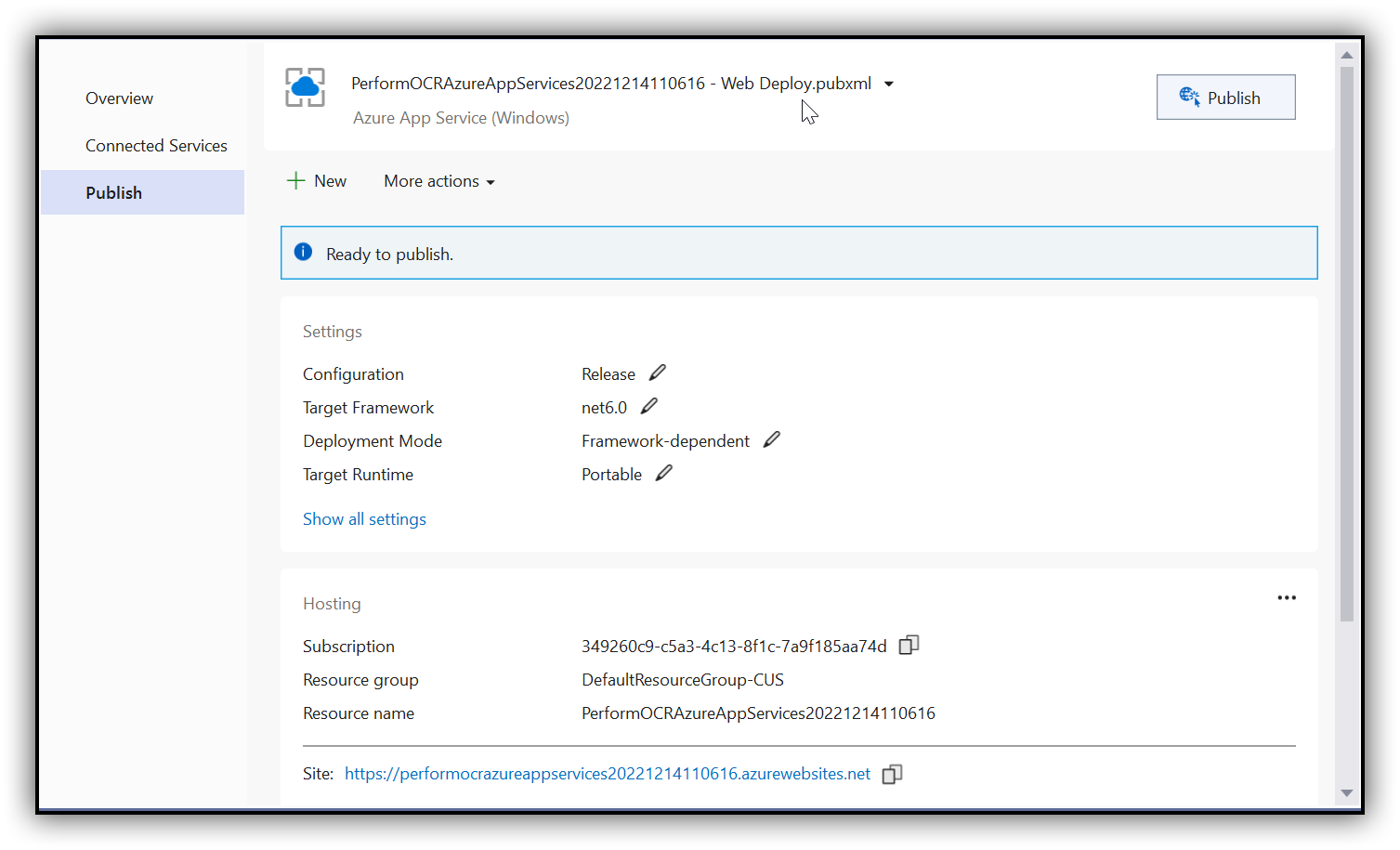
Step 7: Click Close button.
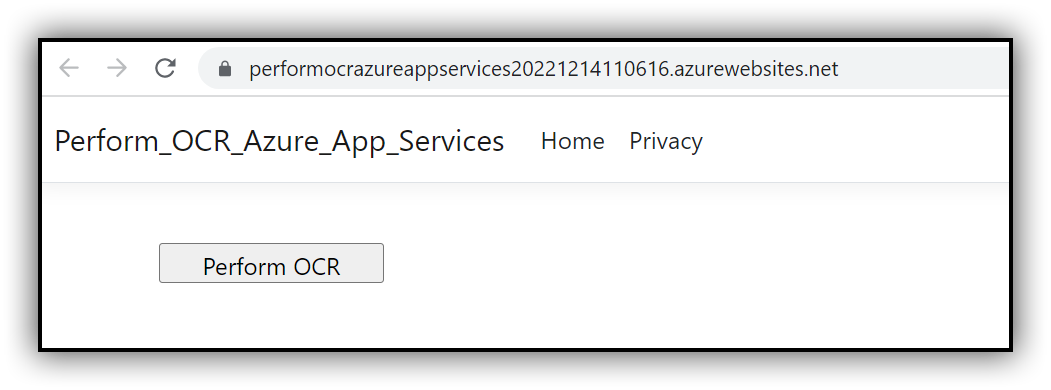
Step 8: Click the Publish button.

Step 9: Now, Publish has been succeeded.

Now, the published webpage will open in the browser, then click the Perform OCR button then perform OCR on a PDF document.

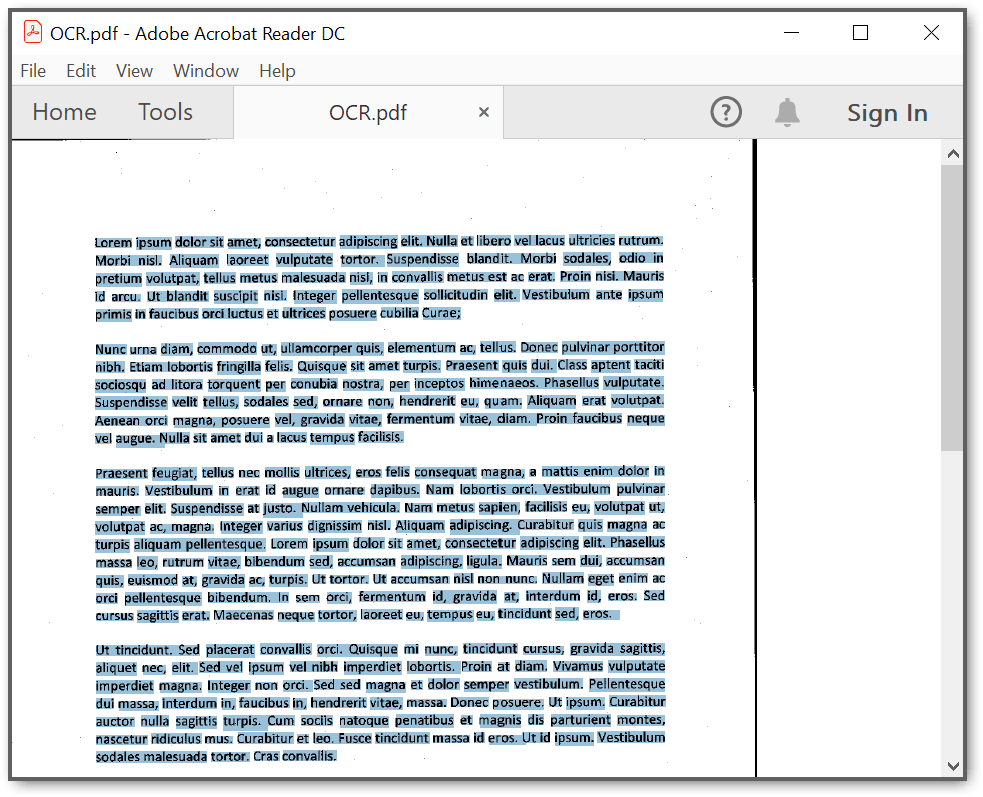
A complete work sample for performing OCR on a PDF document in Azure App Service on Windows can be downloaded from GitHub.
Azure Functions
Steps to perform OCR on the entire PDF document in Azure Functions
Step 1: Create the Azure function project.
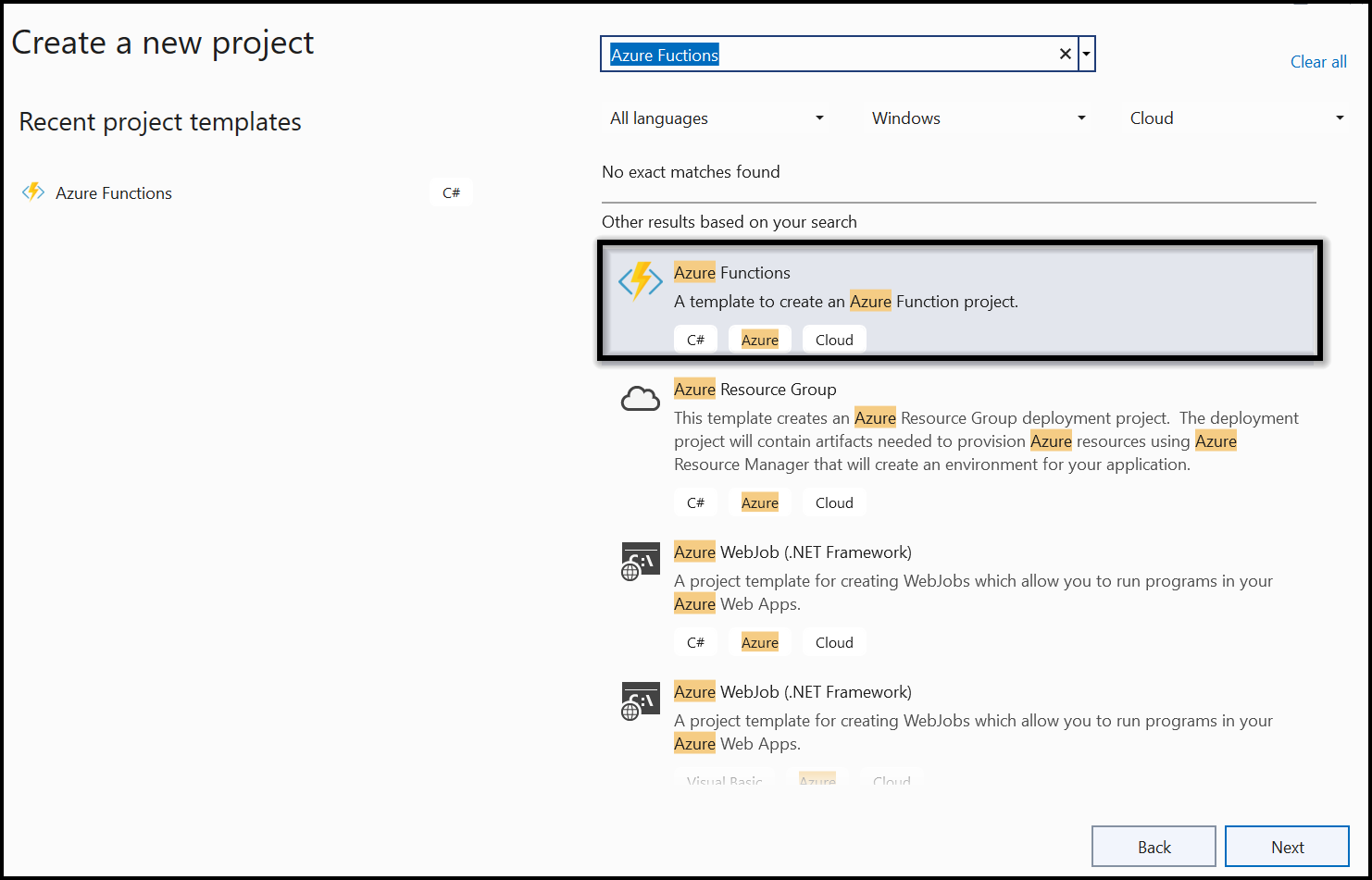
Step 2: Select the framework to Azure Functions and select HTTP triggers as follows.
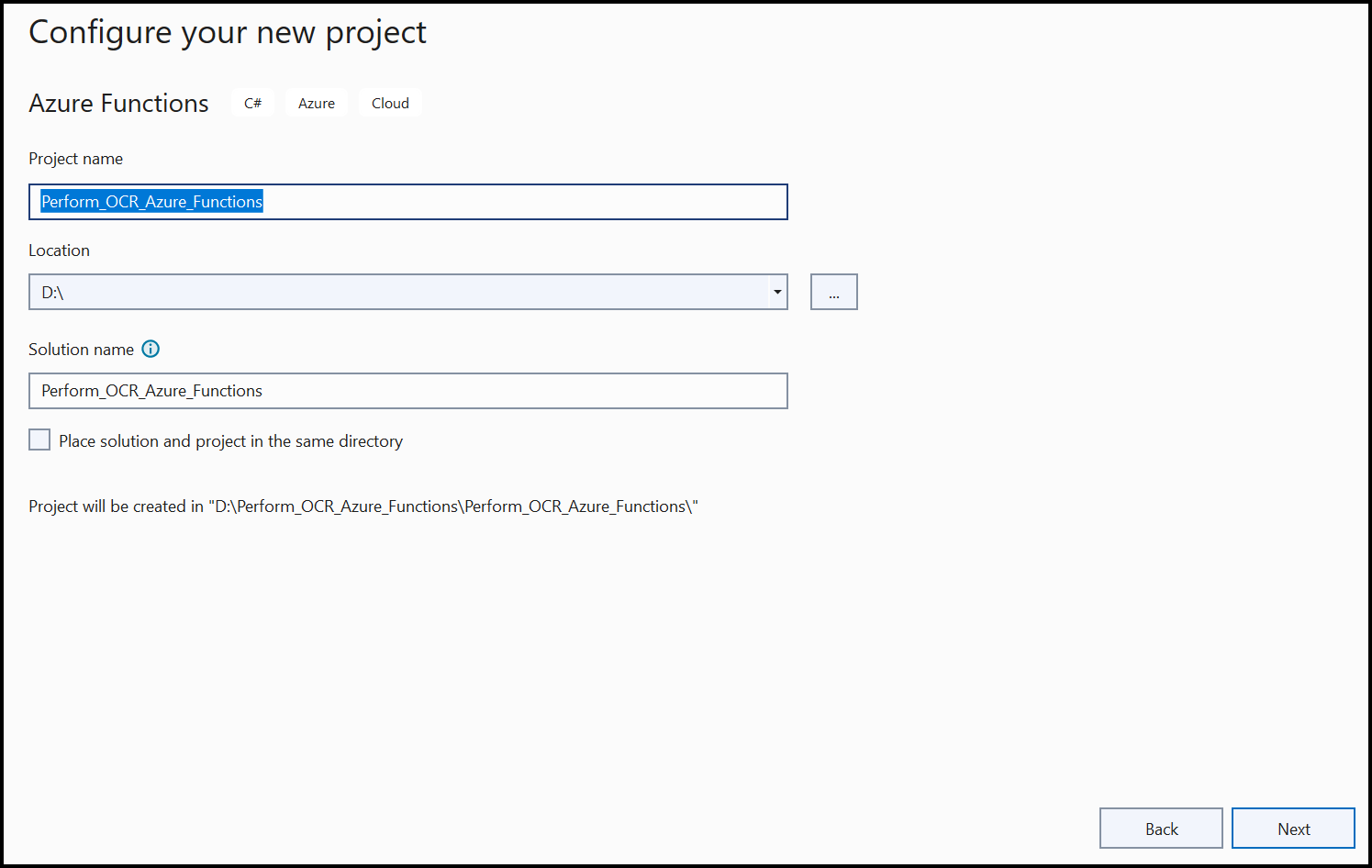
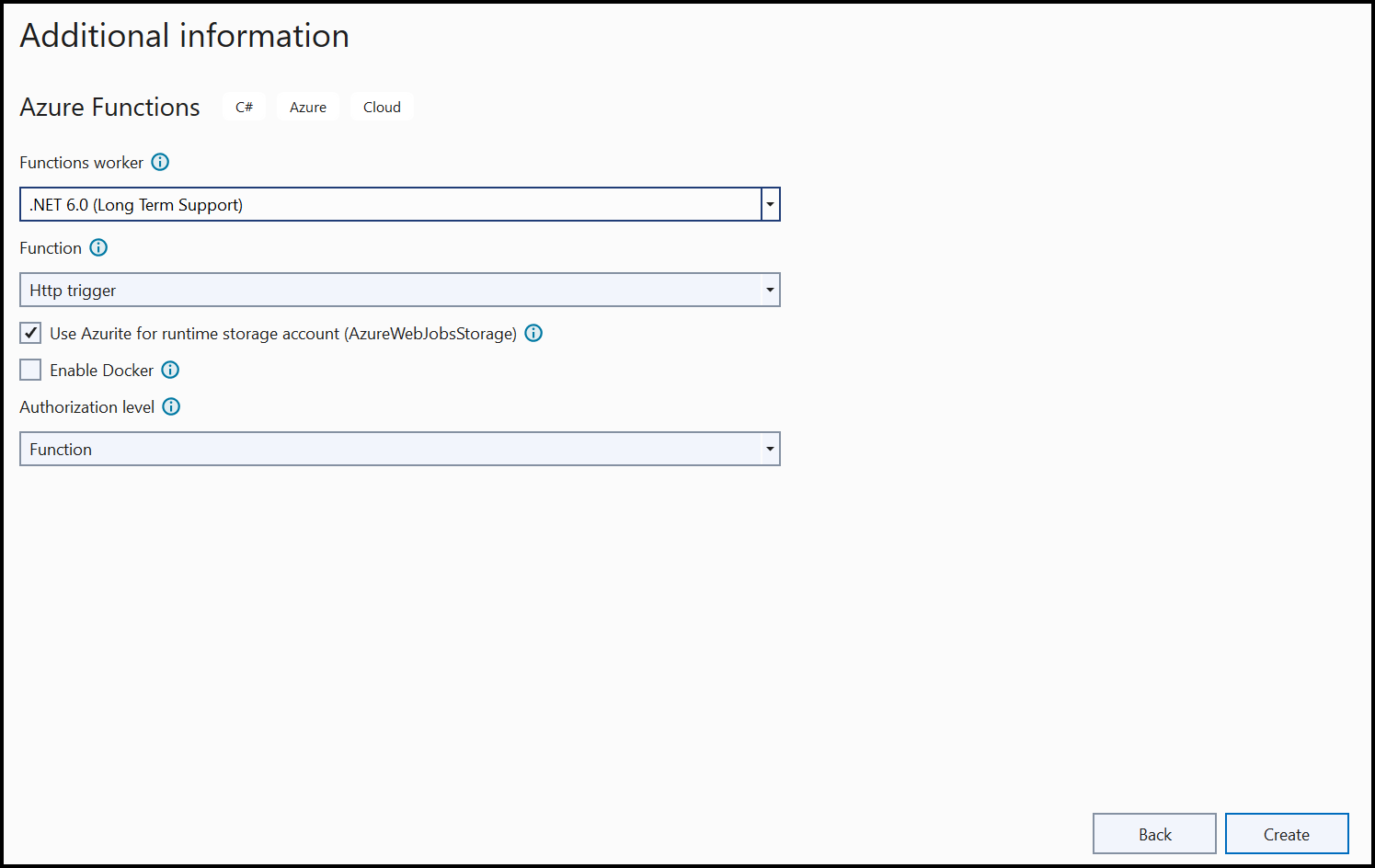
Step 3: Install the Syncfusion.PDF.OCR.Net.Core NuGet package as a reference to your .NET Standard applications from NuGet.org.

Step 4: Copy the tessdata folder from the bin->Debug->net6.0->runtimes and paste it into the folder that contains the project file.
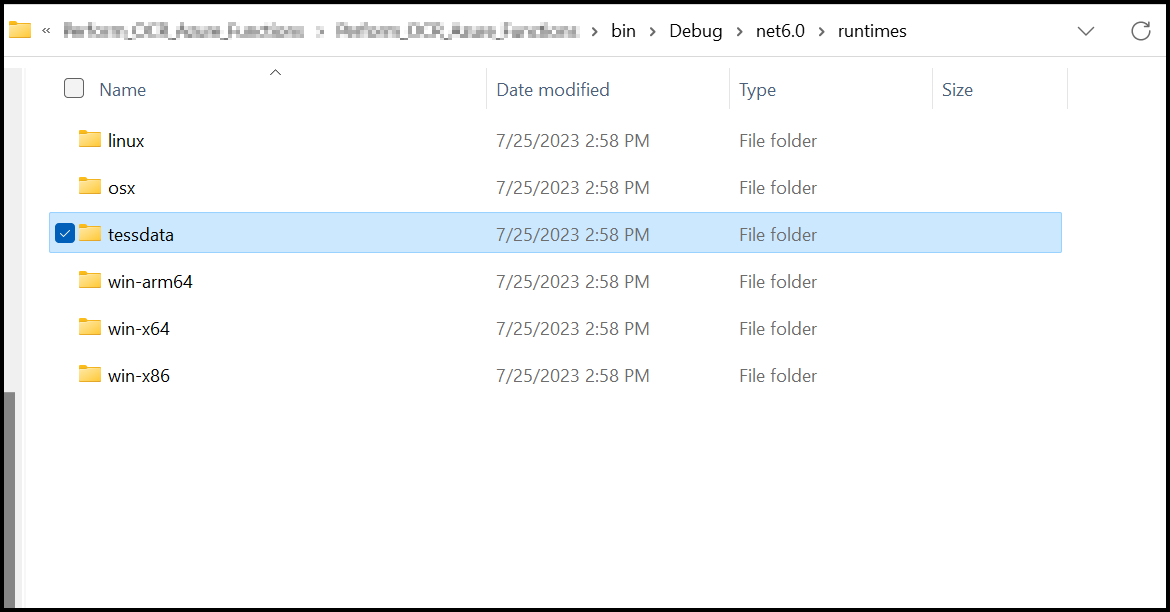
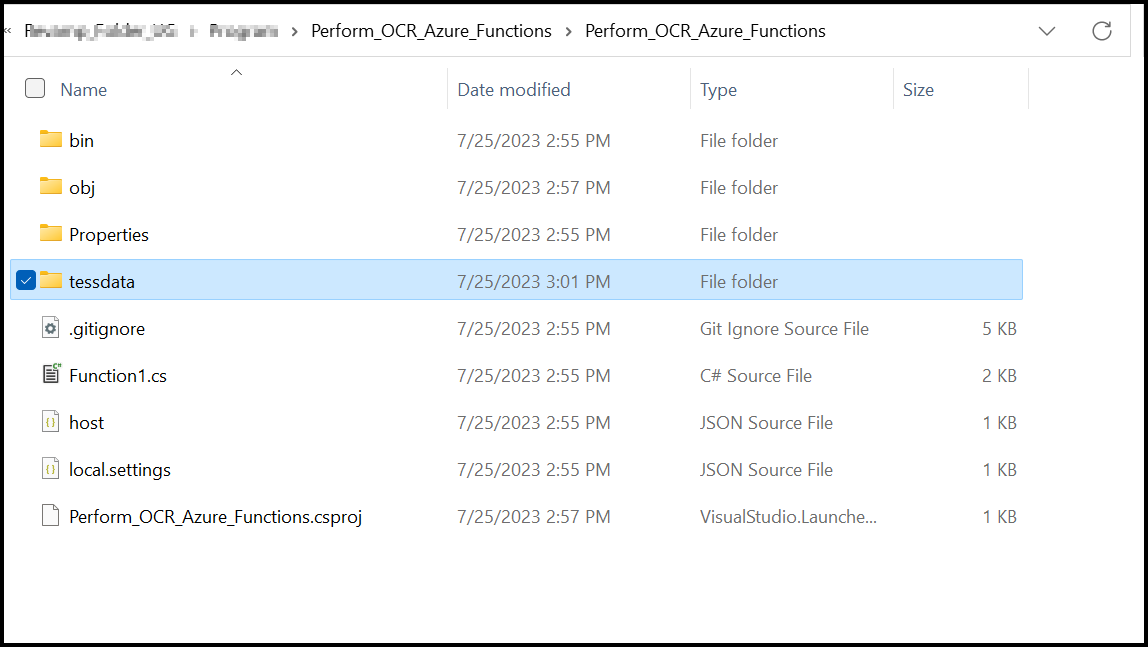
Step 5: Then, set Copy to output directory to give copy always the tessdata folder.
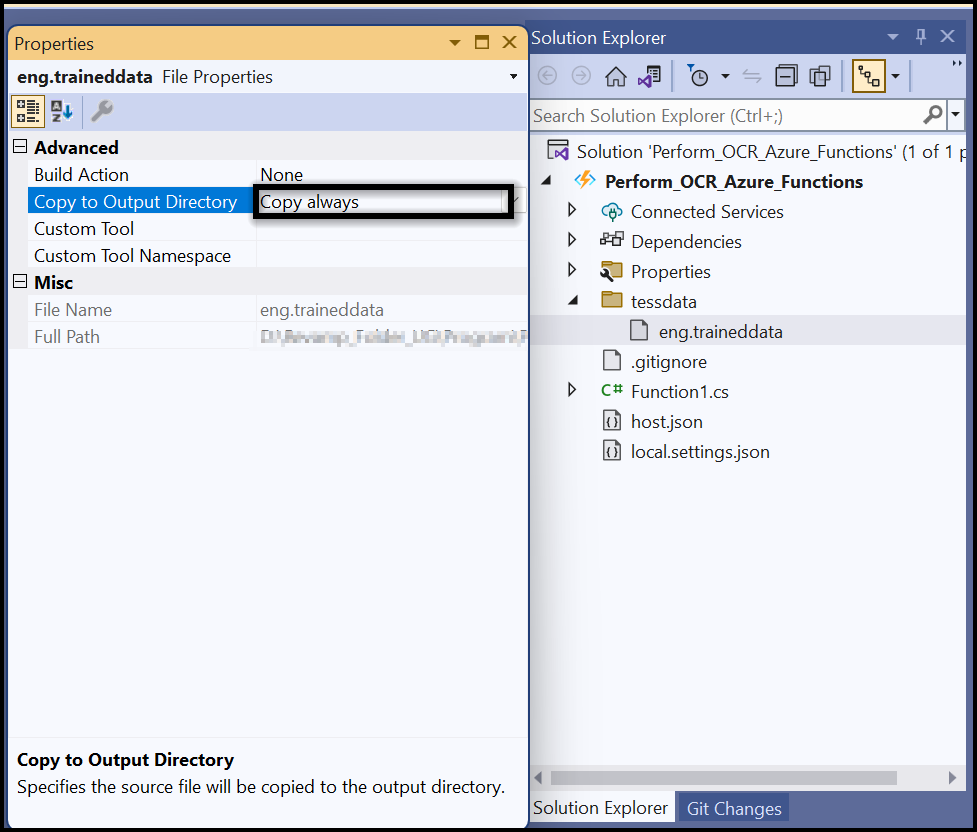
Step 6: Include the following namespaces in the Function1.cs file to perform OCR for a PDF document using C#.
using System;
using System.IO;
using System.Threading.Tasks;
using Syncfusion.OCRProcessor;
using Syncfusion.Pdf.Graphics;
using Syncfusion.Pdf;
using System.Net.Http;
using Syncfusion.Pdf.Parsing;
using System.Net.Http.Headers;
using System.Net;
using Microsoft.Azure.WebJobs.Host;
using Microsoft.Azure.WebJobs;
using Microsoft.Azure.WebJobs.Extensions.Http;Step 7: Add the following code sample in the Function1 class to perform OCR for a PDF document using PerformOCR method of the OCRProcessor class in Azure Functions.
[FunctionName("Function1")]
public static async Task<HttpResponseMessage> Run([HttpTrigger(AuthorizationLevel.Function, "get", "post", Route = null)] HttpRequestMessage req, TraceWriter log, ExecutionContext executionContext)
{
MemoryStream ms = new MemoryStream();
try
{
OCRProcessor processor = new OCRProcessor();
FileStream stream = new FileStream(Path.Combine(executionContext.FunctionAppDirectory, "Data", "Input.pdf"), FileMode.Open);
//Load a PDF document.
PdfLoadedDocument lDoc = new PdfLoadedDocument(stream);
//Set OCR language to process.
processor.Settings.Language = Languages.English;
//Perform OCR with input document.
string ocr = processor.PerformOCR(lDoc,Path.Combine(executionContext.FunctionAppDirectory, "tessdata"));
//Save the PDF document.
lDoc.Save(ms);
ms.Position = 0;
}
catch (Exception ex)
{
//Add a page to the document.
PdfDocument document = new PdfDocument();
PdfPage page = document.Pages.Add();
//Create PDF graphics for the page.
PdfGraphics graphics = page.Graphics;
//Set the standard font.
PdfFont font = new PdfStandardFont(PdfFontFamily.Helvetica, 6);
//Draw the text.
graphics.DrawString(ex.ToString(), font, PdfBrushes.Black, new Syncfusion.Drawing.PointF(0, 0));
ms = new MemoryStream();
//Save the PDF document.
document.Save(ms);
}
HttpResponseMessage response = new HttpResponseMessage(HttpStatusCode.OK);
response.Content = new ByteArrayContent(ms.ToArray());
response.Content.Headers.ContentDisposition = new ContentDispositionHeaderValue("attachment")
{
FileName = "Output.pdf"
};
response.Content.Headers.ContentType = new System.Net.Http.Headers.MediaTypeHeaderValue("application/pdf");
return response;
}Step 8: Now, check the OCR creation in the local machine.
Steps to publish as Azure Functions
Step 1: Right-click the project and click Publish. Then, create a new profile in the Publish Window. So, create the Azure Function App with a consumption plan.
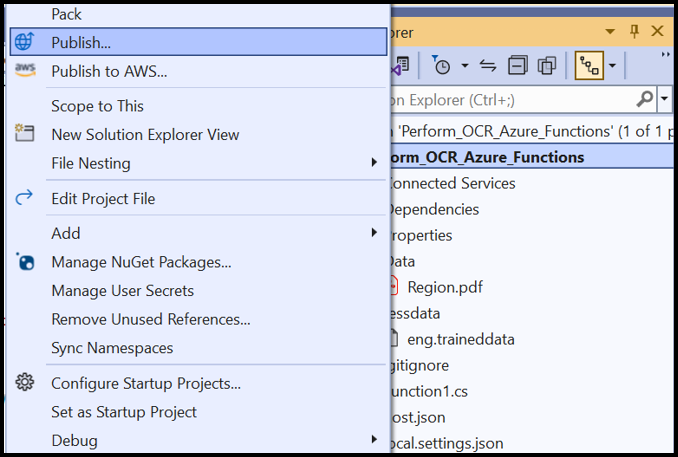

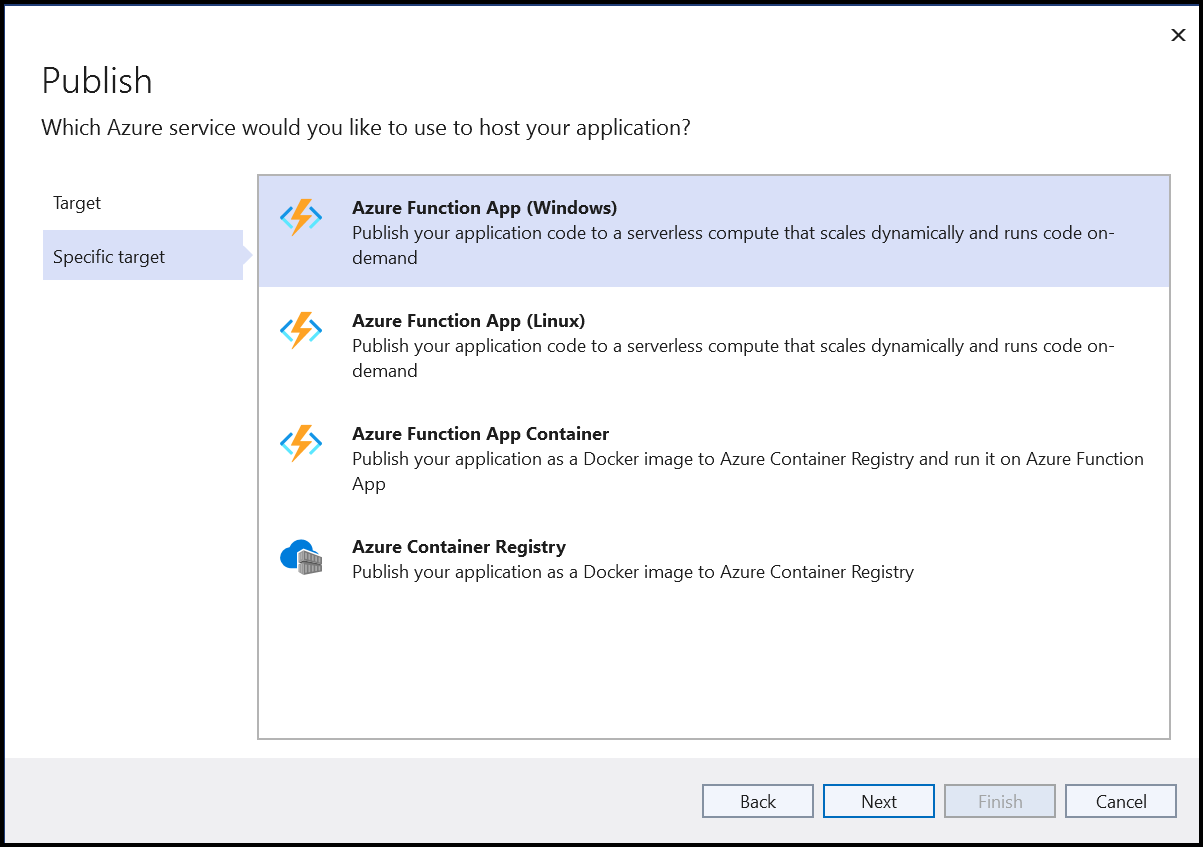
Step 4: To create a new app service, click Create new option.
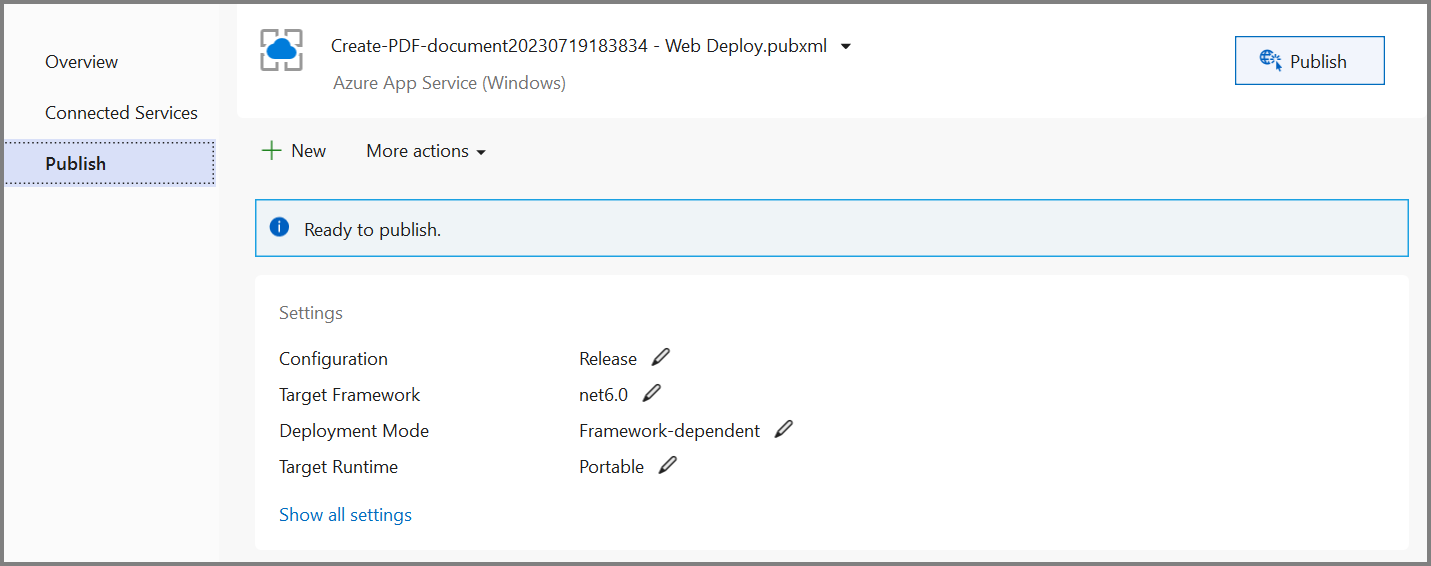
Step 5: Click the Create button to proceed with App Service creation.
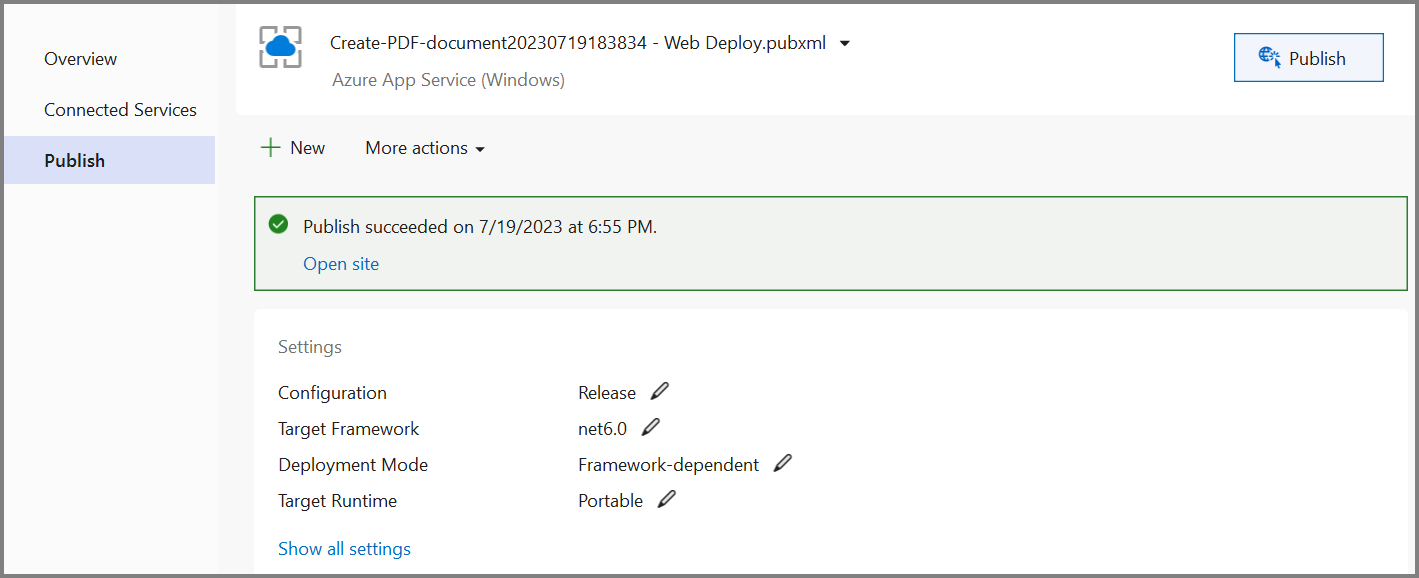
Step 6: Click the Finish button to finalize the App Service creation.

Step 7: Click deployment type.

Step 8: Click Close button.

Step 9: Click the Publish button.

Step 10: Now, Publish has been succeeded.

Step 11: Now, go to the Azure portal and select the Functions Apps. After running the service, click Get function URL > Copy. Include the URL as a query string in the URL. Then, paste it into the new browser tab. You will get a PDF document as follows.

A complete working sample can be downloaded from GitHub.
Click here to explore the rich set of Syncfusion® PDF library features.